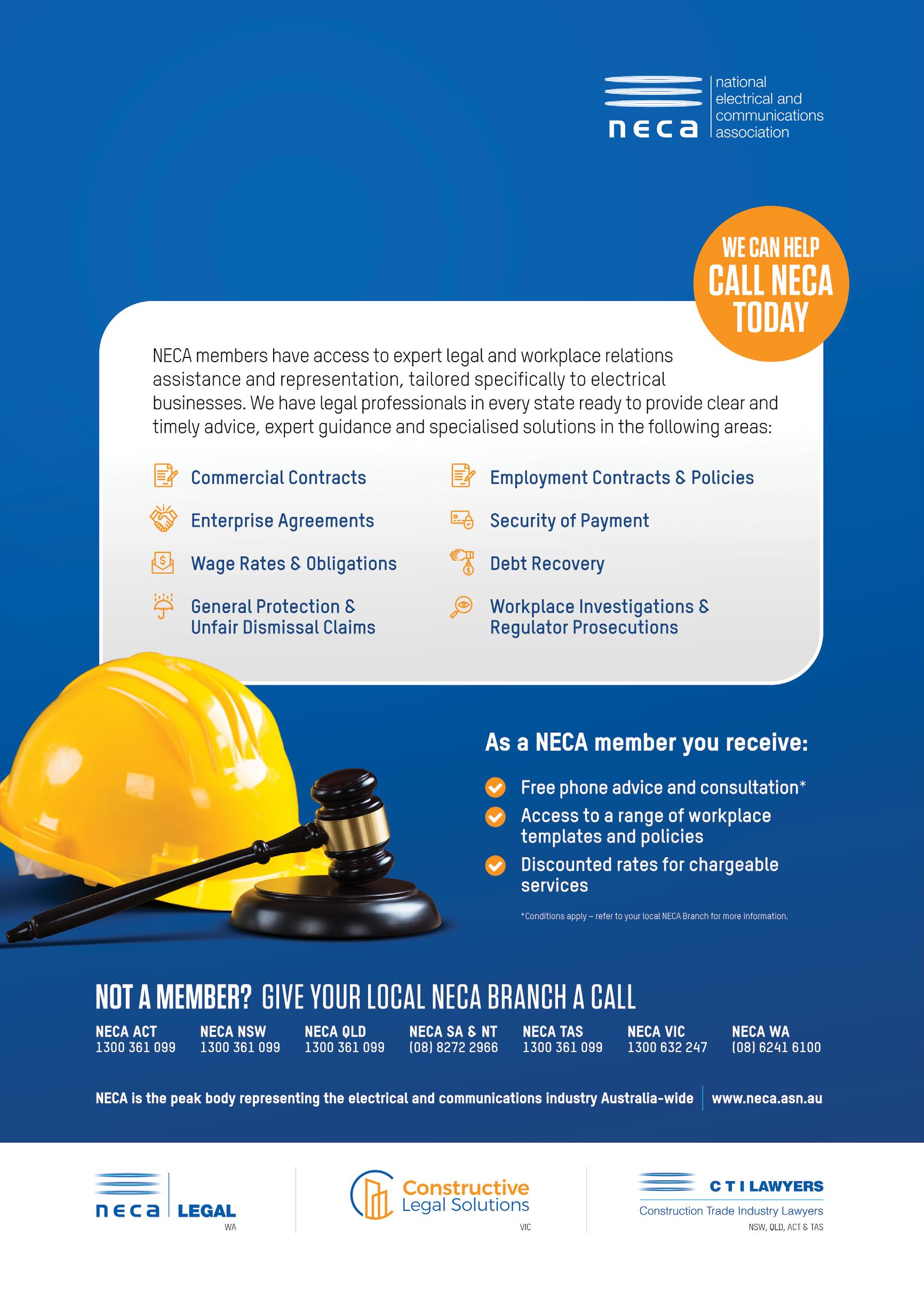
3 minute read
new IR Laws for Casual employees
NEW IR LAWS
FOR CASUAL EMPLOYEES
THe FAIR WORK AMenDMenT (SUPPORTING AUSTRALIA’S JOBS AND ECONOMIC RECOVERY ACT 2021) (CTH) COMMenCeD OPeRATIOn On 27 MARCH 2021. BeLOW IS A SuMMARY OF THe KeY AMenDMenTS AnD TRAnSITIOnAL ARRAnGeMenTS FOR eMPLOYeRS.
This legislation amends the Fair Work Act 2009 (Cth) (FW Act) in three key areas.
(1) A new definition of a casual employee
under the new definition, a person is a casual employee if they accept a job offer from an employer knowing there is no firm advance commitment to ongoing work with an agreed pattern of work. In determining whether the employer has made no firm advance commitment to continuing and indefinite work, regard must be had to: Whether the employer can elect to offer work; The person can elect to accept or reject work; The person will work as required by the employer; The employment is described as casual; and The person will be entitled to a casual loading. Once employed as a casual, an employee will continue to be a casual employee until they either: become a permanent employee through: casual conversion, or are offered and accept the offer of full-time or part-time employment; or stop being employed by the employer. For existing casuals who were employed immediately before 27 March 2021 and whose initial employment offer meets the above definition, they will continue to be casual employees under the FW Act.
(2) A legislative entitlement for casuals to request conversion to permanent employment
The national employment Standards (neS) now requires employers to offer eligible casual employees conversion to permanent employment after twelve months of service unless there is a reasonable business justification not to do so. To be eligible, the employee must have worked regularly and on an ongoing basis for at least six months of that period. The obligation to offer conversion will not be imposed on small business employers (less than fifteen employees) although, small business employers will still need to grant conversion requests from eligible casuals unless they have reasonable grounds for refusing the request. employers must give every new casual employee a Casual employment Information Statement (the CeIS) before, or as soon as possible after, they start their new job and to existing casual employees as soon as possible after 27 March 2021. For more information on the CeIS visit: www.bit.ly/fairworkreforms The amended FW Act clarifies that previous service performed as a casual employee, will not form part of the length of service for determining neS entitlements such as annual leave, personal/carer’s leave, payment in lieu of notice and redundancy pay.
The amended FW Act allows Courts to offset casual loading amounts paid to an employee against certain permanent employee entitlements, during a period when that employee was not a casual employee. As such, employers should ensure their instruments used to engage casuals expressly link the payment of loadings with the absence of neS entitlements to paid leave, notice and redundancy pay. This is a prerequisite for accessing this new statutory right to set off casual loading against claims for neS entitlements.
Transitional provisions
The new amendments will have a significant impact and employers have been given until 27 September 2021 to assess all existing employees against the conversion criteria and offer conversion to permanent employment if the employee meets the eligibility requirements. The Fair Work Commission will review all Modern Awards between now and 27 September 2021, to ensure their consistency with the new neS casual conversion provisions. Awards will be varied to the extent of any inconsistency. Any employment offers made before 27 March 2021 will fall within the meaning of casual employment under the FW Act if they satisfy the criteria in the new definition of casual employment. In this way, the new statutory definition of casual employee, casual conversion and offsetting provisions will apply retrospectively. exceptions to the retrospective application apply where an employee: is found by a Court not to be a casual employee before 27 March 2021; or has converted to an employment basis other than casual under the FW
Act or a contract of employment. employers should now re-examine their casual contracts to ensure they take advantage of the certainty provided by the new laws.
Disclaimer: This summary is a guide only and is not legal advice. For more information on NES entitlements, call the legal service offered by your local NECA Branch.
CONTACT NECA FOR EXPERT LEGAL ADVICE AND REPRESENTATION











